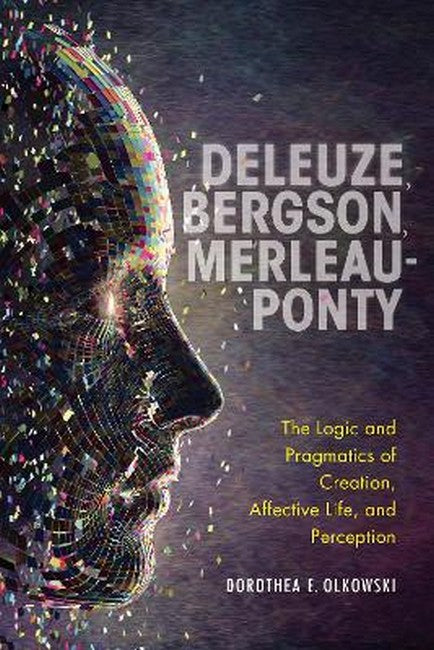Dorothea Olkowski is Professor and former Chair of Philosophy at the University of Colorado, Colorado Springs; Director of Humanities; Director of the Cognitive Studies Program; and former Director of Women's Studies. She is author of more than one hundred articles and twelve books, including Postmodern Philosophy and the Scientific Turn, The Universal (In the Realm of the Sensible), Feminist Phenomenology Futures (with Helen Fielding), Deleuze and Guattari's Philosophy of Freedom: Freedom's Refrains (with Eftechios Pirovolakis), and Deleuze at the End of the World: A South-American Perspective on the Sources of His Thought (with Juilan Ferreyra).
Request Academic Copy
Please copy the ISBN for submitting review copy form
Description
Introduction: Deleuze, Bergson, Merleau-Ponty 1. Naturalism, Formalism, Phenomenology, and Semiology in Postmodern Philosophy 2. Deleuze and Guattari's Critique of Logic 3. Bergson and Bergsonism 4. Duration, Motion, and Temporalization: Deleuze, Bergson, Merleau-Ponty 5. Phenomenology and the Event: Merleau-Ponty's Radical Concepts 6. The Philosophy of the Event: The Dark Precursor, the Chaos, and the Cosmos Bibliography Index
"Expertly detailed by Dorothea Olkowski, this book reveals the profound implication and importance of understandings of ontology, multiplicity, and the sensible on phenomenology."-Gregg Lambert, author of To Have Done with the State of Exception, Syracuse University "Dorothea Olkowski extracts from these three philosophers a sense of how to understand the outcomes and prospects of "continental" metaphysical thought today, avoiding both a logicist or scientific reduction of space, time, and experience to the objective framework and a classically phenomenological or transcendental-idealist location of the basis of metaphysics."-Paul Livingston, author of The Politics of Logic, The University of New Mexico "In this deeply original study, Dorothea Olkowski gives a lucid and erudite version of the ideas connecting Deleuze, Bergson, Merleau-Ponty and Peirce. Surprisingly, yet convincingly, complex arguments about formalism and logic explain why they respond differently to the problem of the relation of thought to life."-James Williams, Deakin University "Deleuze, Bergson, Merleau-Ponty offers a fresh, cutting-edge, and profoundly original examination of the complex relations between Deleuze, his inspiration Bergson, and his seeming "rival" Merleau-Ponty. Olkowski adeptly weaves through disparate domains - including aesthetics, physics, logic, philosophy of time, semiotics, mathematics, pragmatics, metaphysics, and phenomenology - to ultimately pave a way to address and answer the question: can philosophy itself become something new? Beautifully written, inspiring, and utterly compelling, Olkowski's book makes great advances in our understanding of these thinkers, all while proving exciting and enjoyable to read."-Corry Shores, author of The Logic of Gilles Deleuze: Basic Principles "In her most recent opus, Dorothea E. Olkowski brilliantly takes her readers on a journey in the realms of arts and sciences that leads to the Cosmos in the company of the key figures of contemporary continental philosophy. A must for an insightful exploration of Deleuze/Guattari's pragmatic thinking and its interconnections with Bergson and Merleau-Ponty."-Alain Beaulieu, Laurentian University

